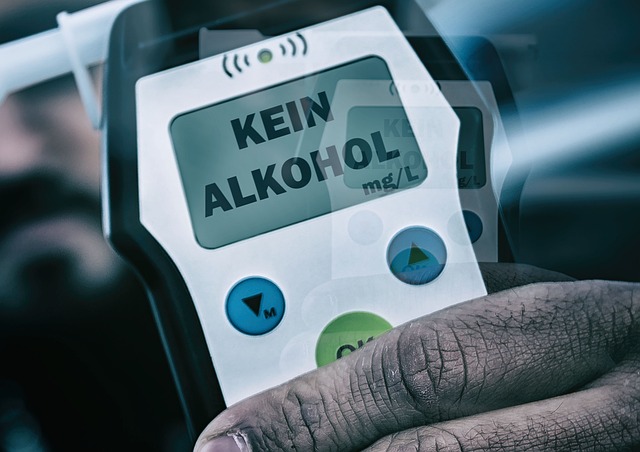In the ride-sharing industry, Corporate DUI Awareness Workshops are a critical strategy for combating impaired driving and enhancing safety. These workshops educate drivers about the risks and legal repercussions of DUI, empowering them with techniques to identify and handle impairment scenarios. By combining these sessions with stringent policies, monitoring systems, random testing, and open communication, ride-sharing companies foster a culture of accountability, reducing DUI incidents and protecting passengers. Regular training and monitoring ensure drivers stay informed and responsible, maintaining the industry's positive image.
Ride-sharing services have revolutionized transportation, but ensuring passenger safety remains paramount. With the rise of drunk driving (DUI) incidents involving ride-sharing drivers, “Corporate DUI Awareness Workshops” are crucial for mitigating risks. This article explores the need for such workshops, examining the significant impact of DUI on the industry and passenger safety. We’ll delve into strategies for designing effective prevention programs and highlight the importance of regular training and monitoring to foster accountable driving practices among ride-sharing drivers.
- Understanding Ride-Sharing Driver Accountability: The Need for Corporate DUI Awareness Workshops
- Impact of DUI on Ride-Sharing Industry and Passenger Safety
- Designing Effective DUI Prevention Programs for Ride-Sharing Drivers
- Role of Regular Training and Monitoring in Maintaining Accountable Driving Practices
Understanding Ride-Sharing Driver Accountability: The Need for Corporate DUI Awareness Workshops

In the rapidly evolving ride-sharing industry, ensuring accountability among drivers is paramount for passenger safety and company reputation. Ride-Sharing Driver Accountability involves a multifaceted approach to mitigate risks associated with impaired driving, which remains a significant concern. One critical component is educating drivers through Corporate DUI Awareness Workshops. These workshops serve as powerful tools to foster a culture of responsibility and prevent tragic incidents.
By organizing such sessions, ride-sharing companies can proactively address the issue of drunk or drugged driving among their workforce. Through interactive training, drivers gain valuable insights into the legal implications, personal consequences, and societal impact of driving under the influence. Workshops can also provide practical strategies to recognize and handle situations involving potential impairment, ensuring a safer environment for both drivers and passengers.
Impact of DUI on Ride-Sharing Industry and Passenger Safety

The impact of driving under the influence (DUI) on the ride-sharing industry and passenger safety is profound. DUI incidents among drivers can lead to severe consequences, including personal injury or death, property damage, and legal repercussions. These incidents not only affect individual passengers but also cast a shadow over the entire industry, eroding public trust. In response, many ride-sharing companies are prioritizing driver accountability and safety by implementing stringent policies and training programs.
Corporate DUI Awareness Workshops play a pivotal role in this initiative. These workshops educate drivers about the dangers of impaired driving, legal penalties, and most importantly, the company’s zero-tolerance policy. By fostering a culture of responsibility and awareness, these workshops help reduce DUI incidents, ensuring that passengers can enjoy their rides with greater peace of mind.
Designing Effective DUI Prevention Programs for Ride-Sharing Drivers

Designing effective DUI prevention programs for ride-sharing drivers involves a multi-faceted approach that combines education, enforcement, and support. Corporate DUI awareness workshops play a crucial role in fostering a culture of responsibility within these organizations. By conducting regular training sessions, companies can equip their drivers with knowledge about the risks and consequences of driving under the influence. These workshops should cover topics such as impairment recognition, safe riding practices, and personal accountability.
Moreover, implementing robust monitoring systems and random alcohol testing can serve as a strong deterrent. Encouraging open communication and providing resources for drivers to seek help if they struggle with substance abuse issues is also essential. Through these comprehensive measures, ride-sharing companies can ensure that their drivers remain accountable and prioritize safety, ultimately reducing the risk of DUI incidents and promoting a positive image for the industry.
Role of Regular Training and Monitoring in Maintaining Accountable Driving Practices

Regular training and monitoring are vital components in fostering responsible and accountable driving practices among ride-sharing drivers. These measures help to keep up with evolving traffic laws, safety regulations, and best practices for passenger security. Corporate DUI Awareness Workshops, for instance, play a crucial role in educating drivers about the dangers of impaired driving and the consequences of breaking the law.
Through ongoing training sessions, drivers can stay informed about new initiatives aimed at enhancing road safety and preventing accidents. Monitoring systems also enable companies to track driver behavior, ensuring adherence to company policies and safety protocols. This proactive approach not only maintains high standards but also serves as a deterrent for any potential misconduct, thereby contributing to the overall integrity of the ride-sharing industry.
The ride-sharing industry’s growth underscores the urgent need for enhanced driver accountability, especially regarding DUI incidents. By implementing comprehensive Corporate DUI Awareness Workshops and regular training, companies can significantly reduce risks and ensure passenger safety. These initiatives, coupled with rigorous monitoring, are pivotal in fostering a culture of responsible driving among ride-sharing drivers, ultimately upholding industry standards and public trust.






